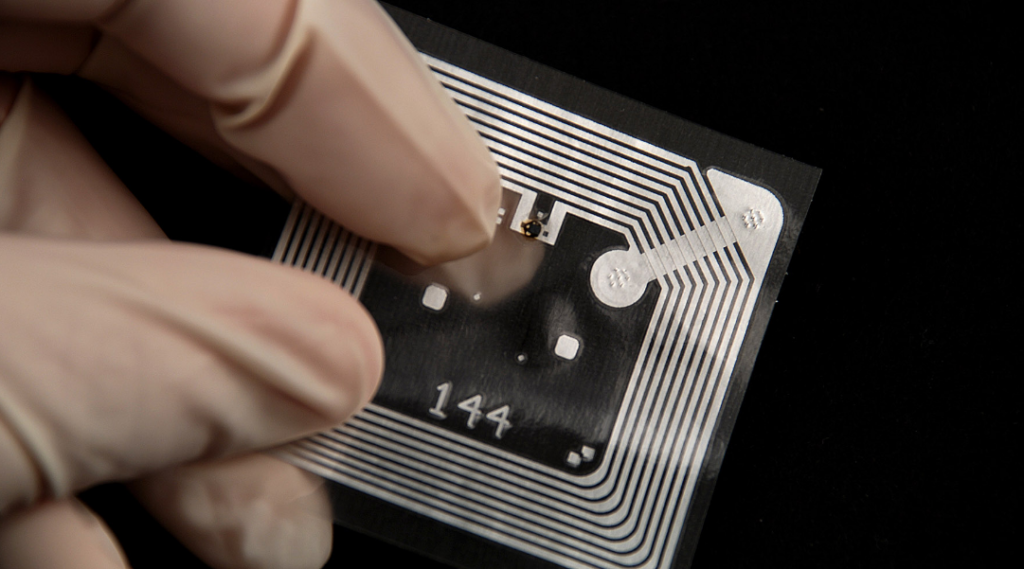Table of Contents
- Introduction to RFID Technology
- The Advantages of RFID Over Traditional Barcoding
- Key Industries Benefiting from RFID Integration
- Innovative Applications of RFID in Retail
- RFID in Healthcare: Enhancing Patient Safety and Care
- Overcoming Challenges in RFID Implementation
- Future Trends in RFID Technology
- Conclusion
Introduction to RFID Technology
Radio Frequency Identification (RFID) technology is leading a transformative shift in operational practices across various sectors. It offers an advanced solution for resource management and inventory tracking. RFID automatically identifies and monitors tags affixed to different items using electromagnetic fields. This advancement significantly improves operational efficiency by decreasing reliance on manual data input, thereby reducing the likelihood of errors and human intervention. The continuous advancements in warehouse management with RFID highlight its significant potential to enhance efficiency within numerous sectors.
Unlike traditional systems, such as barcodes, RFID offers an automated alternative for swiftly and accurately capturing data without requiring direct line-of-sight scanning. This technological capability enables businesses to cut costs, reduce labor efforts involved in inventory management, and ultimately boost productivity. As industries increasingly recognize these compelling benefits, the adoption of RFID technology steadily increases, reshaping the competitive landscape.
The Advantages of RFID Over Traditional Barcoding
For decades, barcodes have been the cornerstone of inventory management systems. However, the technology has shifted the paradigm, offering advantages that transcend barcodes. One significant benefit of RFID is its ability to capture information without needing line-of-sight scanning, allowing multiple items to be scanned simultaneously. This capability streamlines processes, particularly in environments where speed and efficiency are paramount, such as warehouses and retail stores.
Furthermore, RFID tags can store complex data beyond the capabilities of standard barcodes, including specific product information, detailed movement history, and precise expiration dates. Such comprehensive data storage empowers businesses to gain valuable insights into their inventory dynamics, enabling informed decision-making and reducing waste. As companies seek innovative methods to enhance their operational efficiency, the transition from barcodes to RFID technology is gaining appeal. Further exploration is encouraged to gain a more comprehensive understanding of the advantages of RFID compared to barcoding.
Key Industries Benefiting from RFID Integration
Numerous industries are reaping the rewards of RFID integration, demonstrating its versatility and profound impact. In manufacturing, RFID systems are pivotal in tracking components and products as they progress through production lines. This technology ensures rigorous quality control and reduces the likelihood of defects, ultimately enhancing productivity and cutting operational costs.
In the logistics sector, RFID technology facilitates real-time tracking of shipments, significantly diminishing delays and enhancing customer satisfaction by providing transparency in the supply chain. By automating traditionally manual processes, RFID frees up human resources, enabling staff to tackle more intricate challenges. In a competitive marketplace, such adaptability and effectiveness are essential, establishing RFID as an indispensable instrument for innovation and advancement.
Innovative Applications of RFID in Retail
The retail industry embraces RFID technology to bolster inventory accuracy and enhance customer experiences. With RFID, retailers are transforming shopping environments with innovations like bright fitting rooms, where customers can interact with RFID-enabled mirrors to request different sizes or colors without leaving the fitting area.
RFID also extends its utility to security measures, preventing theft through mechanisms that trigger alarms if items leave the premises without being deactivated. By integrating RFID into their operations, retailers streamline inventory management and cultivate more engaging consumer shopping experiences. Collectively, these applications present a powerful toolset that addresses ongoing challenges in retail, driving efficiency and increasing retail confidence.
RFID in Healthcare: Enhancing Patient Safety and Care
The healthcare sector is finding immense value in RFID technology, leveraging it to improve patient safety and elevate the standard of care. Hospitals and healthcare providers use RFID to ensure precise tracking of medications, surgical tools, and even patient identification to mitigate errors. This emphasis on accuracy enhances both the safety and efficiency of healthcare operations.
For instance, RFID-enabled wristbands ensure patients receive correct treatments and medications, contributing significantly to patient safety. This technological integration is part of a broader shift towards more innovative healthcare systems, which save time, reduce costs, and improve patient outcomes. To understand the transformative potential of RFID in healthcare, discover how RFID is transforming healthcare with advanced technologies.
Overcoming Challenges in RFID Implementation
Despite RFID technology’s considerable advantages, businesses face notable challenges when integrating RFID systems. Chief among these is the substantial initial setup cost, which can be a barrier for smaller enterprises. Moreover, implementing RFID raises concerns about data privacy and security, as the technology collects and stores extensive amounts of sensitive information.
Organizations must devise strategic plans to address these challenges, prioritizing phased implementation, comprehensive employee training, and robust cybersecurity measures to protect data integrity. By implementing a systematic strategy for RFID integration, organizations can surmount these challenges and fully leverage RFID technology’s capabilities, facilitating enhanced operational efficiency and data-based decision-making.
Future Trends in RFID Technology
As innovation continues to intersect with technology, the future of RFID is intertwined with the Internet of Things (IoT). The fusion of RFID with IoT technologies promises to empower businesses with real-time analytics, enabling them to streamline operations and adapt to rapid changes in the market.
Emerging trends suggest that RFID systems will become more affordable and accessible, allowing a wider range of businesses to adopt this technology. The future holds limitless potential for RFID, promising innovations beyond traditional applications and creating opportunities in unexplored areas.
Conclusion
RFID technology is a transformative force across industries, offering unparalleled efficiency and accuracy in operations. Its ability to transcend traditional methods by providing automated and reliable solutions positions RFID as a cornerstone of modern business. By embracing RFID, companies can not only optimize their management processes but also unlock new avenues for growth and innovation, ensuring they remain attuned to the dynamic demands of the future.

